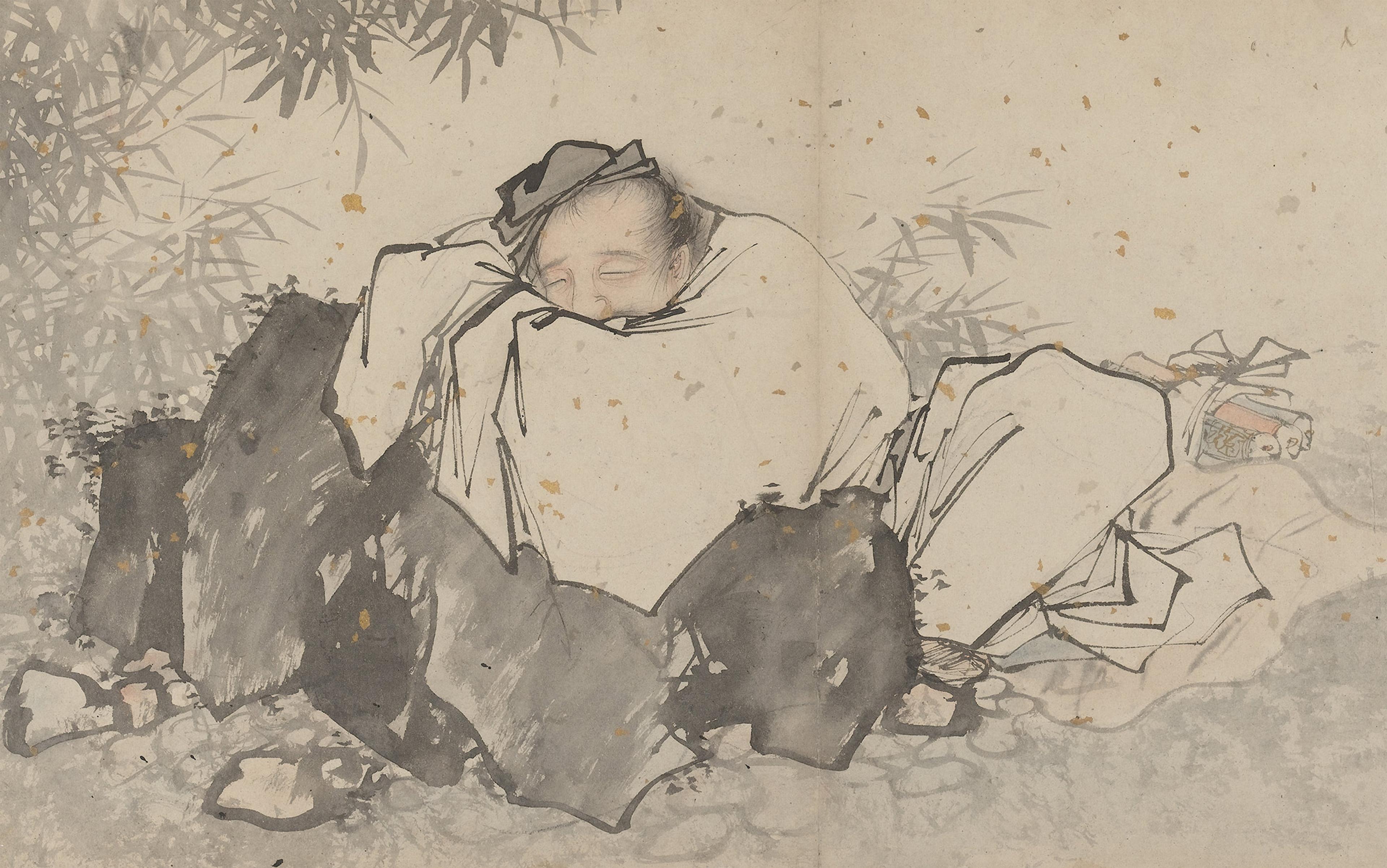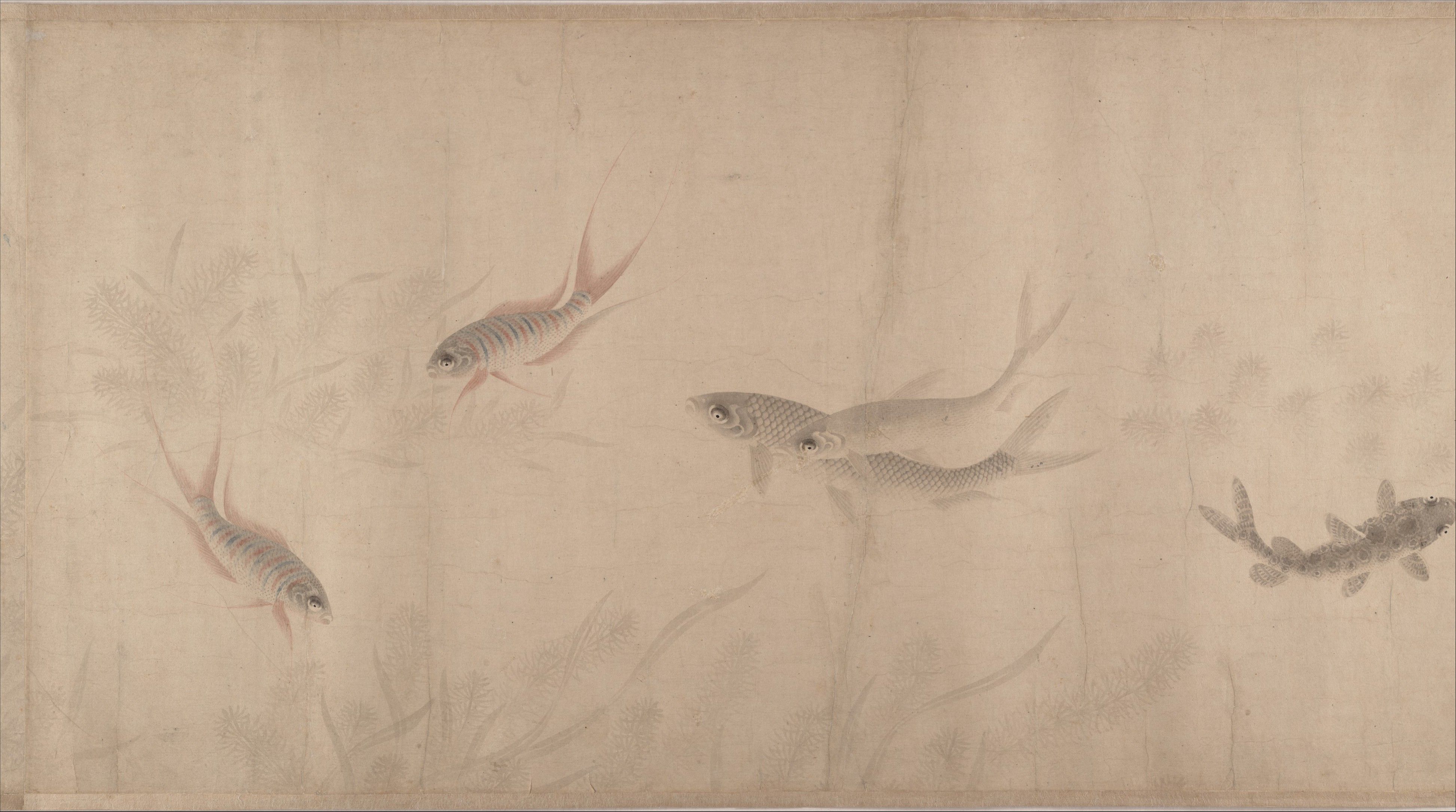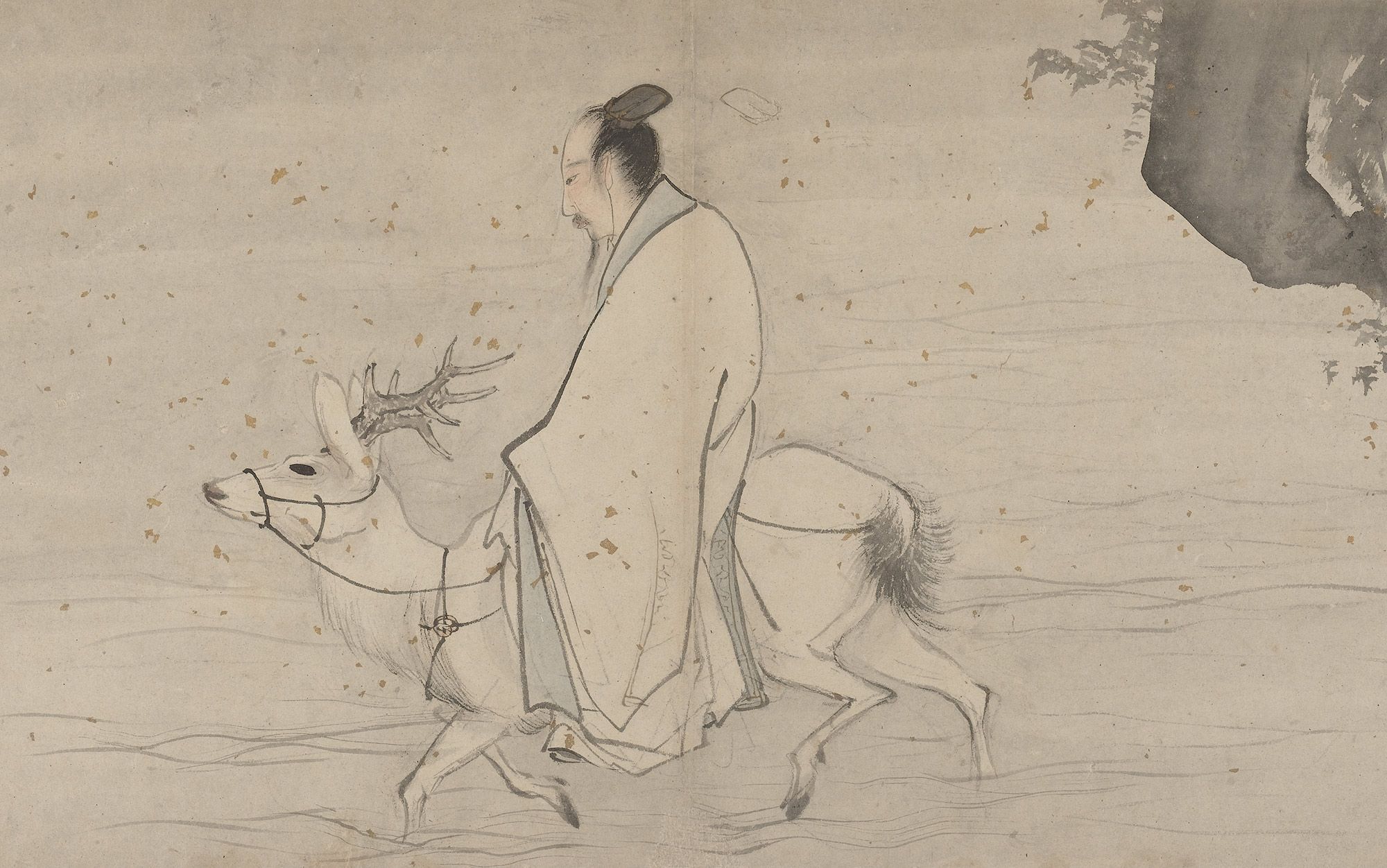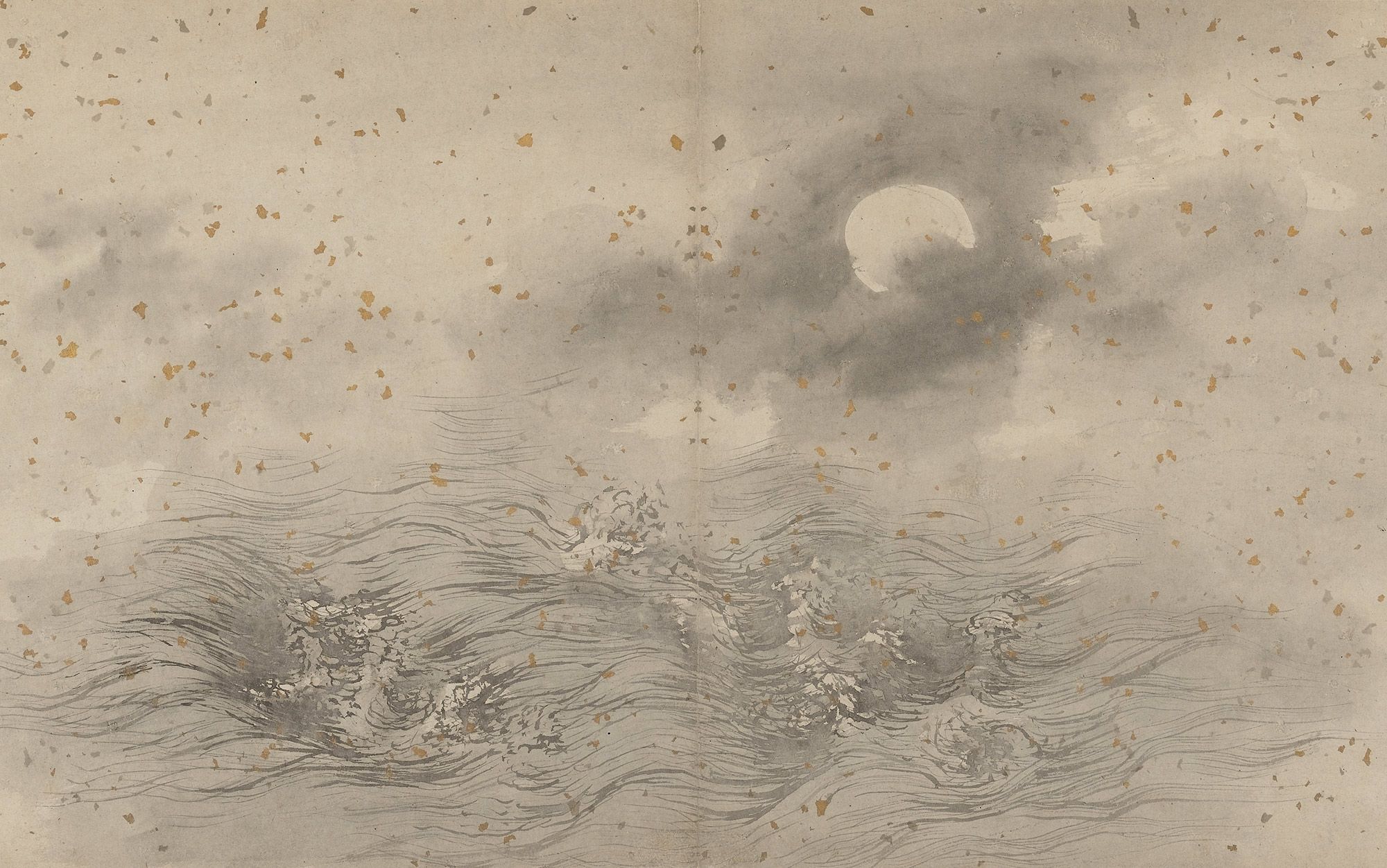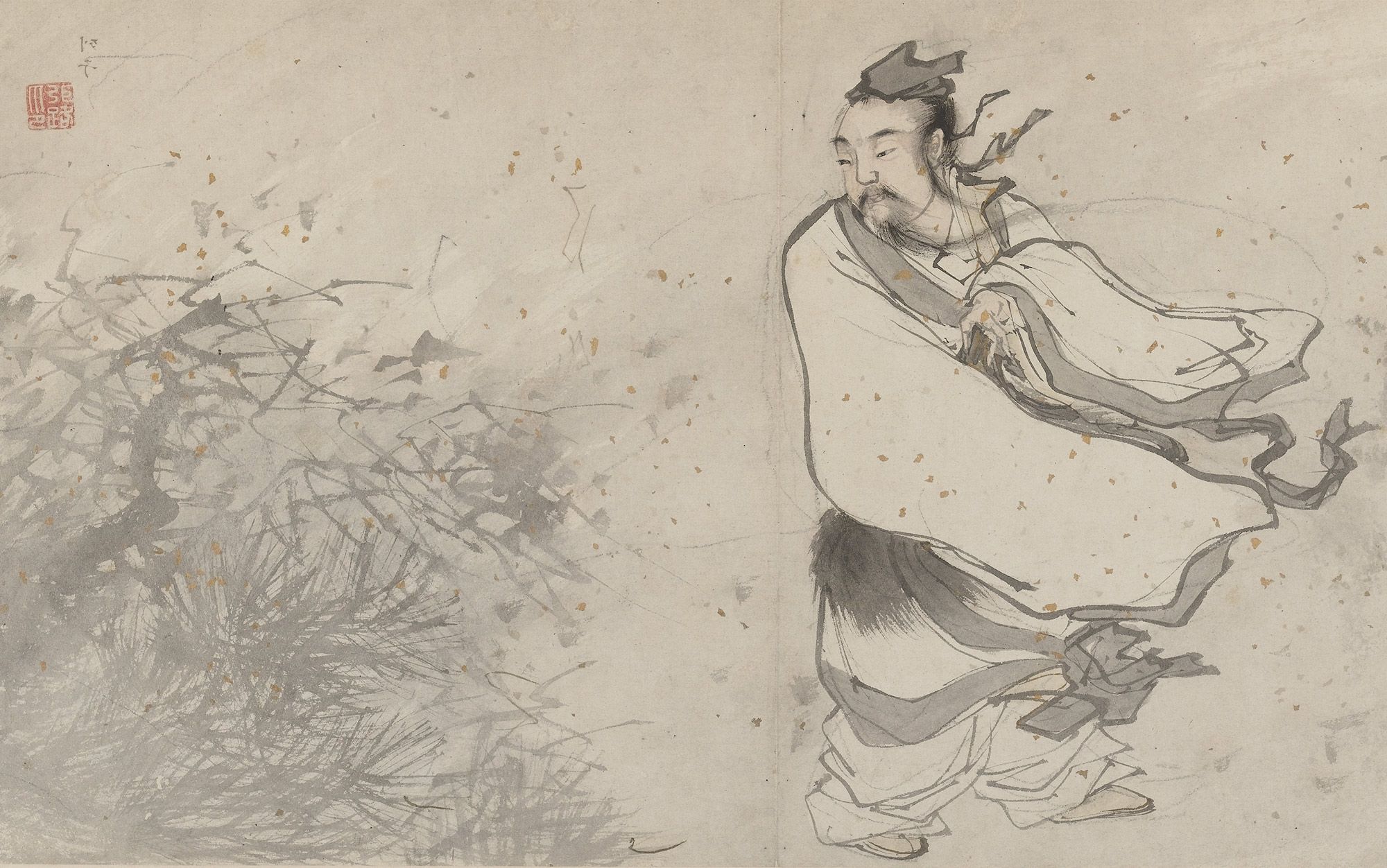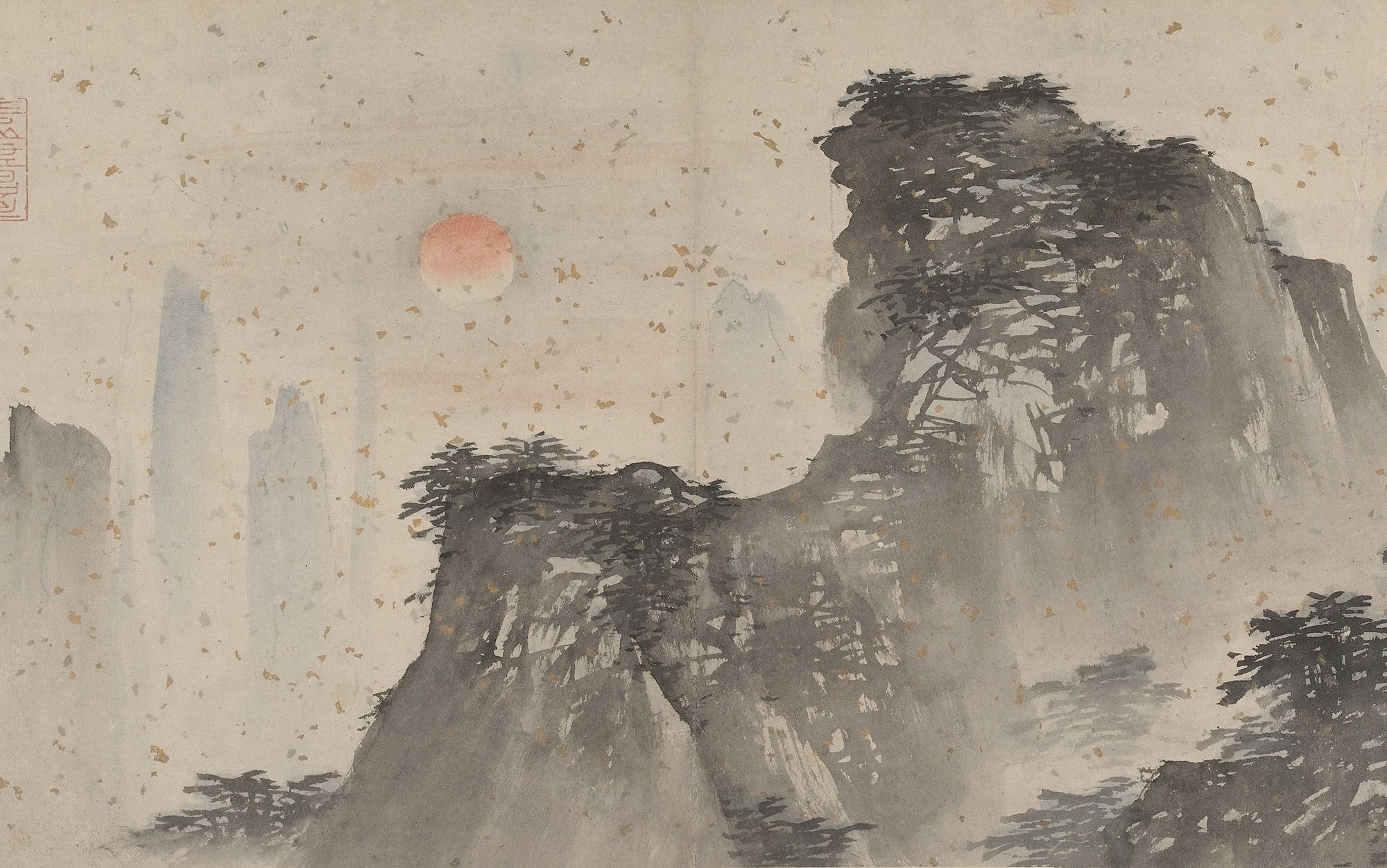The Zhuang Zi has been my close friend for more than two decades, since we first met when I was an undergraduate, then all through my dissertation on it, and right up to the moment of this writing. Though the Zhuang Zi is, technically, a book – a proto-Daoist Chinese classic authored c300 BCE – my relationship with it differs from my relationship with any other book. I imagine that members of religious faiths feel like this about their revealed holy scriptures, which would be inexcusably diminished if understood simply as books.
But ‘holy scripture’ is no better when it comes to the Zhuang Zi. I do not venerate it. I consider it a partner, an adversary and a companion, one that learns from me and is changed by me, just as I learn from it and am changed by it every time we interact. Trust me: I know this book and, like any good friend, I’m pretty sure it would be unhappy at the thought of being venerated. (I understand that might sound strange but, then again, strange claims abound in the arena of sacred texts.)
Here too I’m running into problems, however. In speaking for the Zhuang Zi, I’m somewhat uncomfortable, just as I would be uncomfortable speaking for a friend. I’m not alone in my discomfort. Scholarly introductions to the Zhuang Zi frequently include disclaimers. Like Friedrich Nietzsche and Søren Kierkegaard, Master Zhuang – the supposed author of this eponymous mystery – appears to have engineered his work to resist definitive interpretation. The late translator and sinologist Burton Watson captured how it feels to attempt straightforward exegesis: ‘Whenever I sit down and try to write seriously about Zhuang Zi,’ he explained, ‘I seem, somewhere in the back of my head, to hear Zhuang Zi cackling away at the presumption and futility of such an endeavour.’
I embrace the cackling that Watson describes, relishing the discomfort that inevitably accompanies attempts to pin it down. Even calling it a friend is starting to seem inadequate, inaccurate. Once again, the book is changing as I try to write seriously about it. That’s fine. It’s not a friend anymore. This bizarre combination of masterful fables, poems, dialogues, myths and philosophical musings – it’s a funhouse mirror for your soul, taking a crack at your most deeply held beliefs, destabilising you, forcing you to work just to take yourself seriously.
But just because it’s a funhouse mirror doesn’t make it frivolous. On the contrary: the Zhuang Zi is a jester, whose job description is to improve its readers – or, better, to benefit them. Jesters, despite their apparent frivolity, were essential to the courts that employed them. In addition to providing entertainment, they had licence to violate norms, providing a unique check on tyranny of all kinds: political, moral, linguistic. They spoke truth to power, just as the Zhuang Zi speaks truth to the easy dogmas that fix themselves inside me like bumper stickers on my soul. Its therapeutic cackling softens ossified beliefs that for too long have gone unquestioned and unmocked.
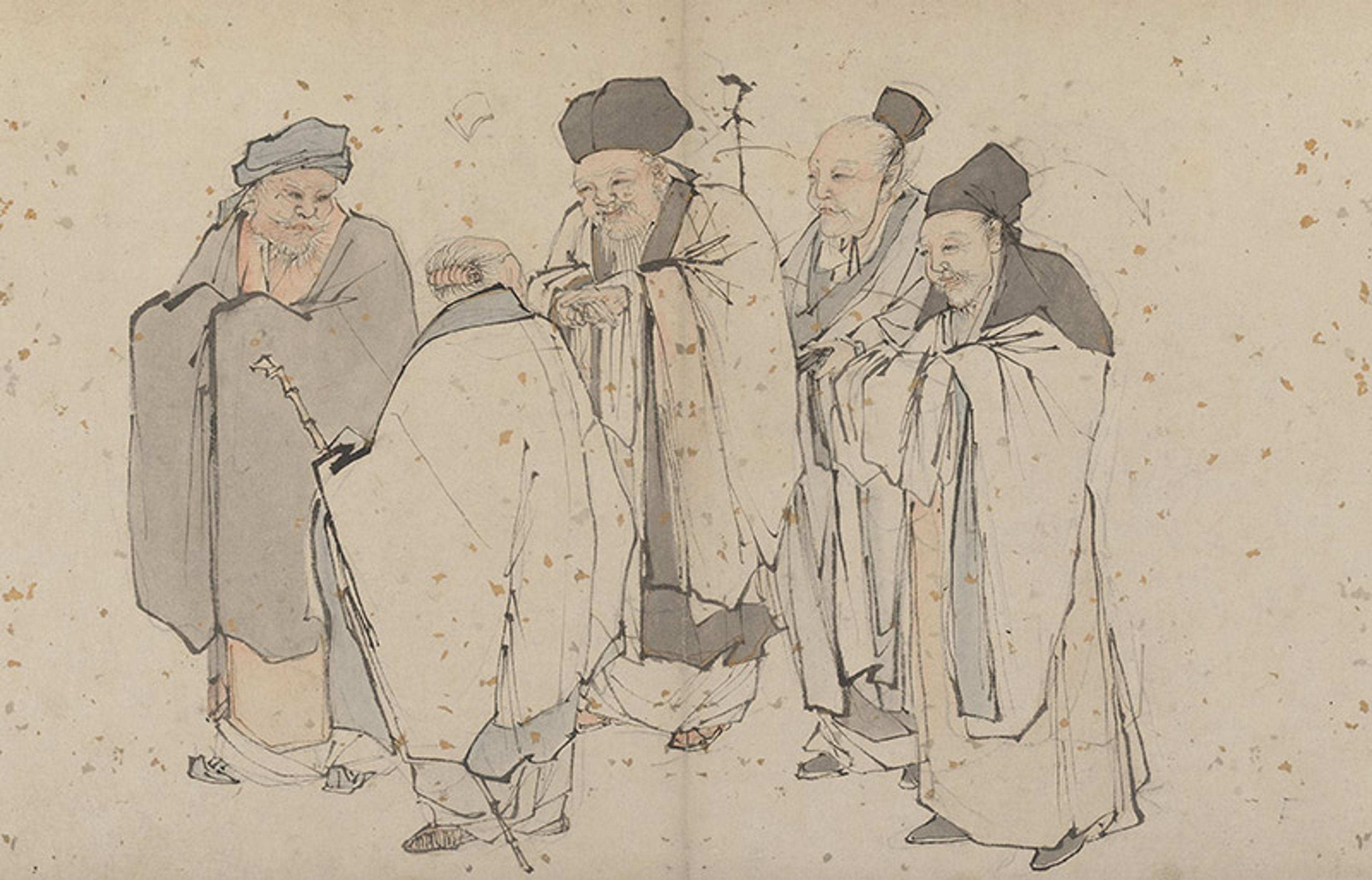
The Five Elders. From Album of 18 Daoist Paintings by Zhang Lu (1464-1538). Ink and eight colours on gold-flecked paper. Courtesy the Shanghai Museum/Wikipedia
If Confucians, Mohists and other members of classical Chinese schools of thought contemporaneous with the first appearance of the Zhuang Zi saw themselves as producing exemplary gentlemen (junzi, 君子), then the Zhuang Zi acts as jester to those gentlemen, and all role models since. Gentlemen – and the texts they live by – are straightforward guides. They educate through cataphasis: positive statements about the Good and the True. Jesters, by contrast, educate through apophasis, literally un-saying. Instead of statements, riddles; instead of commandments, questions. The gentleman supplies positive content, exemplary behaviour, a stable landing place for the student’s understanding, whereas the jester actively undermines the student’s ability to stabilise herself, providing content that is framed by an explicit or implicit negation: a raised eyebrow, a snicker, a punchline. If the preferred rhetorical form of the gentleman is the example, the preferred rhetorical form of the jester is the mystery, or perhaps the practical joke.
The Trappist monk Thomas Merton loved the Zhuang Zi and produced a book in 1965 that collected his translations of favourite passages. His ‘Note to the Reader’ concludes by remarking on the Zhuang Zi’s inscrutability:
The ‘way’ of Chuang Tzu [Master Zhuang] is mysterious because it is so simple that it can get along without being a way at all. Least of all is it a ‘way out’. Chuang Tzu would have agreed with St John of the Cross, that you enter upon this kind of way when you leave all ways and, in some sense, get lost.
Martin Buber, the Jewish theologian and author of I and Thou (1923), also produced a translation and commentary on passages from the Zhuang Zi. I would tell you more about what he thought, but now I’m afraid that leading with these great thinkers’ beliefs about the Zhuang Zi could be a mistake. What if you end up believing that Merton or Buber had figured out the Zhuang Zi? I would have turned the funhouse mirror into a portrait; explained the jester’s jokes before he got to tell them. The Zhuang Zi played a big role in the development of Chan (Zen) Buddhism. Can you imagine if your koans were prefaced with a book of answers?
Safer, instead, to stick with facts. Bracketing the problem of its meaning, the Zhuang Zi also presents problems of authorship. It’s generally agreed that of the book’s 33 chapters, only the first seven – known as the Inner Chapters – are from the hand of a man named Zhuang Zhou (aka Zhuang Zi, or Master Zhuang), and the remainder were added at a later date. However, some experts claim that the Inner Chapters are themselves the product of different authors, leaving us with little certainty about how the work was composed.
This uncertainty contributes to the Zhuang Zi’s destabilising force. Does the entire book express a coherent philosophical vision, attributable, perhaps, to Guo Xiang (252-312 CE), the editor who compiled and reduced an original 52 chapters to the 33 that we have today? If not, can we at least read the Inner Chapters as if they were written by a single individual? Or is it our job to trawl through every chapter looking for the genuine insights of Zhuang Zhou, to be separated out from the surrounding chaff?
Even assuming unified authorship of the Inner Chapters, the biography of their author is sparse and poorly sourced. Scholarly disclaimers abound: ‘Little is known about Zhuang Zi…,’ write Philip Ivanhoe and Bryan Van Norden in their collection of readings from classical Chinese philosophy. ‘Not much is known about Zhuang Zi…,’ says Brook Ziporyn in the introduction to his translation. ‘All we know about the identity of Zhuang Zi…,’ begins Watson’s introduction.
What follows these disclaimers is inevitably a brief and tentative history of Zhuang Zhou, culled from the book itself (not exactly a reliable source) and a short biography written by the great Chinese historian Sima Qian, nearly 200 years after Master Zhuang’s death. Apparently, he lived in the city of Meng, in the state of Song, during a time of great political turmoil called the Warring States Period. Sima Qian says he was employed as a minor official in ‘the lacquer garden’ – though no one knows whether that was an actual garden, a library, or something else entirely.
But does any of that even matter?
In annotating the first chapter of the Zhuang Zi, I’ve tried to capture my relationship with my friend – a friend with whom one can disagree about the most important things in life and come out better for doing so. In other words, I focus primarily on how the text speaks to and with me, not just what it might have meant to the author, or to other audiences in other times. This approach has precedents in Kuang Ming-Wu’s The Butterfly as Companion, the inimitable spirit of Master Yingning (攖寧子), and, further back, in the work of the 17th-century polymath and Buddhist monk Fang Yizhi (方以智), author of The Monk of Yaodi Roasts Zhuang Zi.
(Selections from the latter, along with many other traditional commentaries, can be found in Ziporyn’s translation of the Zhuang Zi, whose version of the first chapter I have borrowed with slight modifications.)
Alan Jay Levinovitz is an associate professor of philosophy and religion at James Madison University in Virginia. He is the author of The Gluten Lie: And Other Myths About What You Eat(2015), The Limits of Religious Tolerance (2016) and the editor, with Daniel Boscaljon, of Teaching Religion and Literature (2018).
